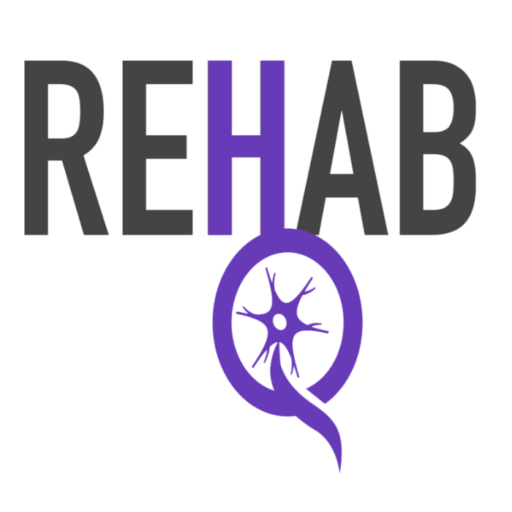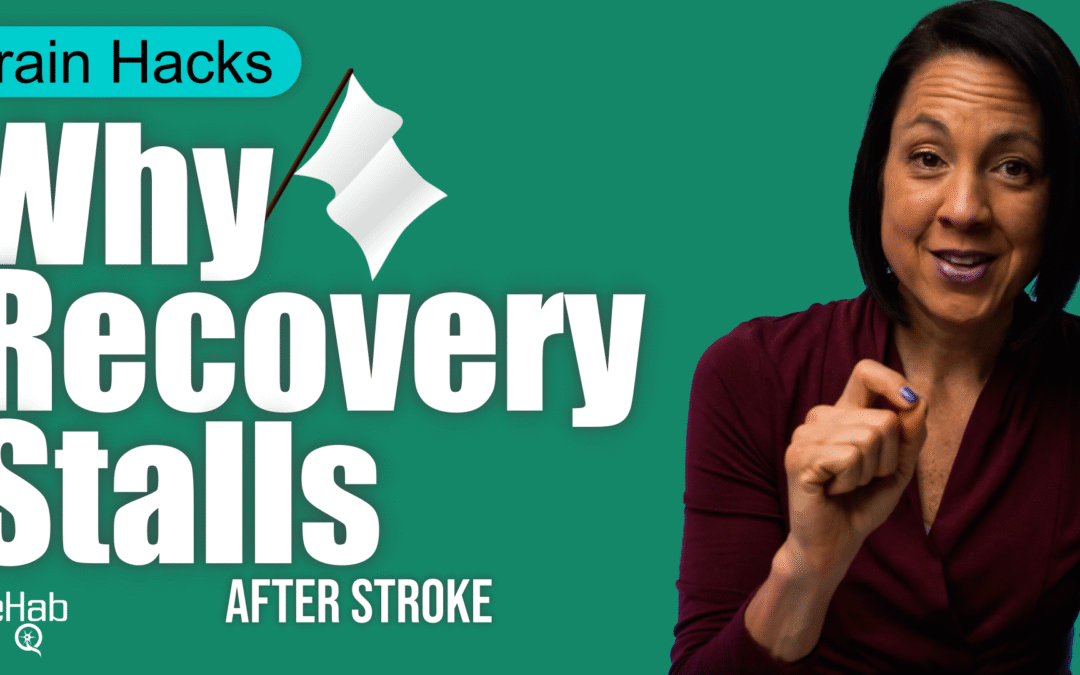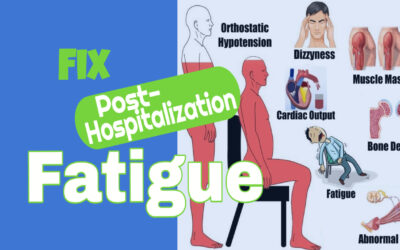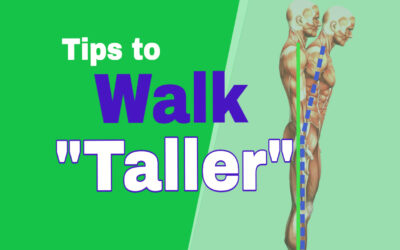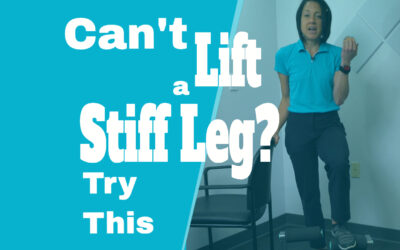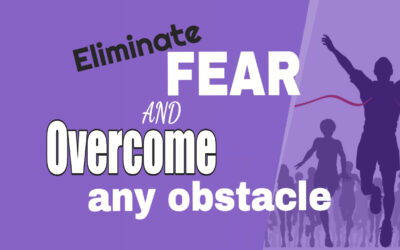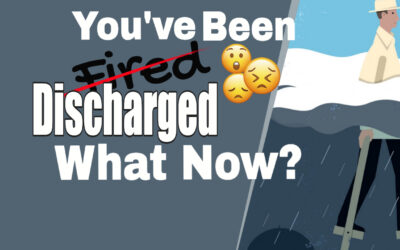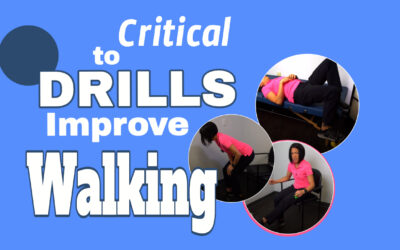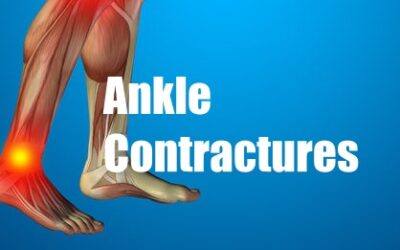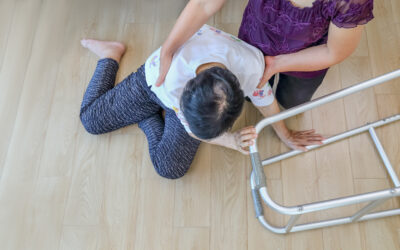Why Stroke Recovery Stalls and How to Push Through
Recovery may feel stuck, but progress is still possible. Here’s how to keep improving after a plateau.
Recovering from a stroke or neurologic injury can feel overwhelming. Walking, driving, working, or even just picking up your grandkids. It all feels like a mountain to climb. But what if I told you the secret isn’t in chasing the big goals right away? It’s in celebrating small wins every single day.
Why Big Goals Can Feel Overwhelming
I’ve worked with patients for over 22 years, and one of the most common things I see is this: the finish line feels too far away. You look at all the exercises, all the steps between where you are now and where you want to be, and it feels like dumping out a 1,000-piece puzzle. You don’t even know where to start.
And when your brain starts telling you “there’s no way I’ll get there,” motivation goes out the window.
Why Small Wins Matter for Your Brain
Recovery after stroke isn’t like recovering from a sprained ankle. It’s not just about getting your muscles stronger. You’re not just rehabbing a body part, you’re retraining your brain.
That means you need repetition, over and over, to rewire those pathways.
If someone had handed you an algebra book in elementary school, you probably would’ve thrown in the towel. But broken into small chunks? You learned, step by step, until one day algebra made sense.
Recovery works the same way.
The Confidence Snowball
Here’s what happens when you set small goals:
- You start to see yourself differently.
- You go from being “stuck” to being someone who can overcome challenges.
- Your confidence grows.
That confidence builds momentum. Momentum keeps you motivated. And once your brain starts to believe that, progress speeds up.
Real-Life Wins
Some of my patients want long exercise lists. They feel like if they’re not doing more, more, more, they’re not working hard enough.
But in reality? The people who get the best results are the ones who stick to a short, simple program every single day.
For example: Flipping your hand over 10 times.
These things sound small. But stacked up over days and weeks, they create real change. I’ve seen it hundreds of times.
Celebrate Every Step
Some of the best signs of progress aren’t dramatic, they’re subtle. Things like:
- Being able to lift your leg into the car a little easier
- Stepping over a curb without thinking about it
These are huge wins. If you start writing them down every day, you’ll be amazed at how far you’ve come in just a few weeks or months.
And if you feel like you can’t find any win? Then celebrate the fact that you showed up and did something today. That alone is a win.
How to Make Small Wins Work for You
Keep goals tiny. Make them so small you know you can succeed daily.
Tie them to a habit. Brush your teeth? Do 3 sit-to-stands right after. Making coffee? Practice standing balance for 5 seconds.
Check in occasionally. Zoom out every month or two to see how today’s small goals fit into your bigger vision.
Final Thoughts
Recovery isn’t one giant leap. It’s thousands of small steps, stacked one on top of another.
Don’t underestimate them.
Today, ask yourself: what’s one tiny win I can create? Do that, celebrate it, and trust that these small daily victories will add up to something far bigger than you can imagine.
And if you want more support, structure, and guidance on how to make this work in your recovery, check out our Rehab HQ Membership plans here. It’s designed to give you community, tools, and step-by-step strategies so you can stay consistent and keep moving forward.
Articles you may be interested in
Neuro Rehabilitation: The Choice To Try
“Every accomplishment starts with the decision to try.” – JFK Yes, deciding to try is a choice. In my opinion, it is the only choice. "Choosing to try" (that impossible skill) is hard. What if you fail? What if you put in the time and you don't get your desired...
Post Hospitalization Fatigue: What causes it and how to do fix it?
Do you ever feel so tired, you don't even want to get out of bed? If so, you wouldn't be alone. There is a really good reason for this. Fatigue is an extremely common problem after a hospitalization. And sometimes, it has nothing to do with the reason you were...
Fix a forward flexed posture
Do you ever have any "well-meaning" therapist tell you to stand up taller? 😬🤷🏻♀️ Well, you would not be alone. This is a pretty common problem that has a few different root causes. What causes a forward flexed posture? Weakness Weak hip muscles can potentially lead...
Can’t lift a stiff leg? Try this.
Can't lift a stiff leg? This is a pretty common problem that has a few different root causes. Knowing the root cause is the best way to identify the best exercises. What can make it difficult to lift a stiff leg? Weakness Weakness in the muscles that flex the hip...
Spasticity: Does fear make it worse?
Fear can be a crazy thing. And in some cases can be the root cause of spasticity. Yup, negative emotions can actually make spasticity worse. And in this case, I am going to lump situational fear and anxiety together. What I mean is that maybe you are walking really...
Neurologic Rehabilitation: Master Turn Steps
Turn steps are a critical part of walking without fear of falling. It is also a critical step in neurologic rehabilitation. To understand how to master a turn step it is good to understand all of the little movements that are involved: What movements are required for...
Discharged from therapy. What now?
So, you have been discharged from therapy. So, what now? For some, this is a positive step in the rehab process. Some will understand right away that this is progress. On the other hand, for others it can bring up all kinds of negative emotions. "Is my therapist mad...
Walking Exercises for Stroke Patients
Many people inquire about the "best exercises" for stroke patients to improve walking. I like to use the term "Drills" when referring to "stroke exercises". Why? Because "Drills" are what I think of when I think of repetitive movement. Case and point, drills are...
Ankle Contractures: Best and worst treatments
One of many problems when the neurologic system is damaged are ankle contractures. A contracture is where the soft tissue structures surrounding a joint shorten causing loss of movement. What Causes a Contracture? There are several factors that can lead to an ankle...
Fix your fear of falling
Balance (also known as postural stability) is dramatically impacted when there is damage to the neurologic system and can increase the fear of falling. It is the one ability most of us (adult humans) take for granted……..until it is gone. Lack of postural stability...
